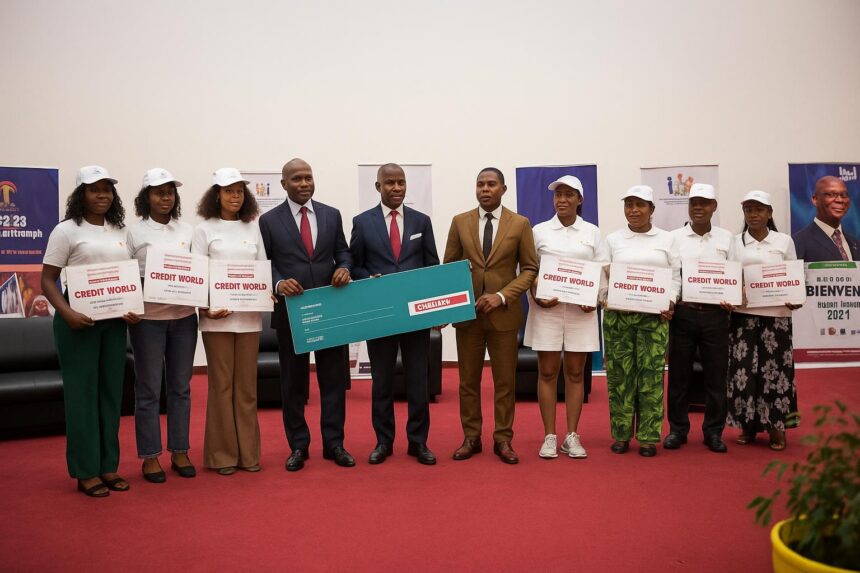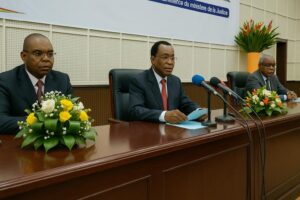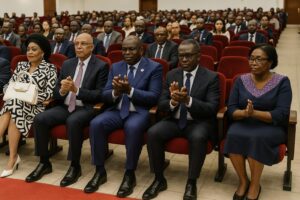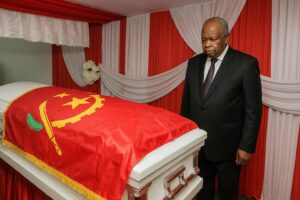Pointe-Noire Forum Delivers Massive Capital
Five hundred aspiring entrepreneurs left Pointe-Noire buzzing with optimism after the Horizon Initiative and Creativity Forum, known by its French acronym Fhic, confirmed financing of 63 billion 800 million CFA francs, roughly 103 million dollars, from the national Fund for Impulse, Guarantee and Support.
The announcement, made on 23 August and later confirmed by government media outlets, underscores Congo-Brazzaville’s continuing push to turn youth creativity into concrete enterprises, particularly in the Atlantic economic hub where unemployment among school-leavers remains a pressing challenge.
Inside the Figa 63.8bn FCFA Envelope
Officials from the Fund for Impulse, Guarantee and Support, better known by its French initials Figa, explained that the envelope is divided across 500 individual files, providing seed capital that varies with project size and risk profile, while monitoring follows each beneficiary for twelve months.
Ten standout proposals, selected after a three-stage evaluation process, secured an additional prize of ten million CFA francs each, along with trophies that organisers believe will help the winners attract mentoring and potential export partners in the months ahead.
Government Sees Youth as Economic Engine
Speaking as official patron of the forum, Prime Minister Anatole Collinet Makosso reminded delegates that President Denis Sassou Nguesso has repeatedly placed youth employment at the centre of his development agenda, describing the Pointe-Noire initiative as a timely lever for inclusive growth.
Land Affairs Minister Pierre Mabiala, who sponsored the awards segment, told reporters that Congo now holds the financial instruments and the political will needed to translate business plans into factories and digital platforms, provided young people ‘match courage with accountability’.
Official statements echo earlier cabinet communiqués that linked small-business support to the national Development Plan 2022-2026, which prioritises diversification away from oil and foresees 90,000 new private-sector jobs once micro-enterprises gain easier access to credit.
Forum Atmosphere and Testimonials
Throughout the three-day gathering, the Fhic stage alternated between high-energy panels, case-study workshops and informal networking corners, creating a space participants compared to a ‘mini-Silicon Valley by the Atlantic’ in interviews given to public broadcaster Télé Congo.
Patrick Ngoma, a software developer whose mobile payment solution made the top ten, said the financial boost means he can ‘move from prototype to pilot phase without leaving the country’, adding that technical accompaniment is ‘as valuable as the cheque itself’.
Aline France Etokabeka, the forum’s executive president, closed proceedings by urging attendees to capitalise on what she called ‘a historic window’, stressing that the credibility acquired by Fhic after five editions now makes it a preferred channel for both domestic and international partners.
How Selection Worked
According to organisers, all 500 applicants underwent an initial compliance screening, after which sectoral experts scored proposals on innovation, market potential and social impact; the final jury, presided over by representatives from Figa, audited financial projections before validating the 63 billion 800 million CFA franc envelope.
Organisers insist the process met international transparency norms, pointing to the presence of civil-society observers and to the publication of results on official channels within twenty-four hours of the closing ceremony, a timeline welcomed by several donor agencies following the event online.
Regional Significance for Pointe-Noire
Located near the country’s principal deep-water port, Pointe-Noire has long been known for oil-sector employment; however, local authorities cited at the forum emphasised that a broader entrepreneurial fabric could shield the city from crude price volatility and retain talent that might otherwise migrate.
City hall representatives revealed that municipal incubators will align their training calendar with Figa’s monitoring schedule so beneficiaries can access co-working desks, market research data and export compliance clinics without incurring additional costs during their critical first year.
Macro-Economic Context
The 63.8 billion CFA franc disbursement represents nearly one-quarter of the national micro-enterprise allocation for 2023, according to figures aired by Radio Congo, illustrating the scale of government commitment despite fiscal pressures linked to global commodity fluctuations.
Economists interviewed during the forum argued that channeling funds through guarantee mechanisms like Figa lowers default risk for commercial banks and could eventually crowd in private capital, a step they view as essential to meeting Congo’s diversification targets.
Digital and Green Opportunities
Mentors noted that many of the selected ventures sit at the intersection of digital services and environmental stewardship, including apps that map coastal erosion and agro-processing units powered by solar panels, reflecting wider continental trends spotlighted by the African Development Bank this year.
Next Steps for Beneficiaries
Each funded entrepreneur must open a dedicated bank account, submit quarterly progress reports and attend at least two capacity-building workshops, according to the standard contract handed out on site; failure to comply triggers a phased reimbursement clause instead of immediate legal action.
For now, the mood remains upbeat; as the last applause faded, several participants spoke of returning to their districts with renewed confidence that the country’s institutions, from the presidency to local incubators, are rallying behind their ambition to turn ideas into sustainable jobs.






















